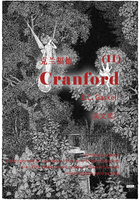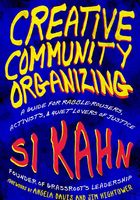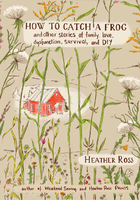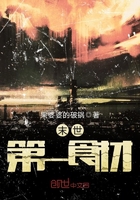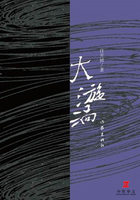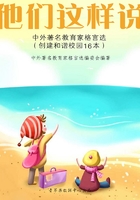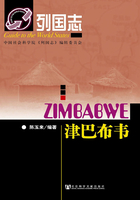The Russians
It was spring 1993 before I saw Veevi again. She invited me for dinner in her flat. We talked whilst she cooked, a documentary about Israeli wildlife running quietly on the Finnish channel to which the TV was tuned. She gave me boiled potatoes with a little meat, pickled cucumbers and sour Georgian white wine, and pasha: a little triangle of creamy pudding with a pink plastic rose planted on top.
"These cups are very beautiful," I said, holding a cup of coffee.
"Oh yes, that is Rosenthal. That is not the only Rosenthal I have."
"Is it from before the war?" I asked politely.
"Oh yes, and everything-this!"-she gesticulated energetically at the curved dark wood sideboard-"this!"-a glass cabinet-"this!" She stepped towards the old desk, and accidentally knocked the thermos on the floor. There were coffee grounds everywhere, because there were still no filter papers. She ineffectually scraped the stain on the oriental carpet, and then swept up the wet grounds.
By now she had claimed back her building. Independent Estonia had passed a law allowing former owners to reclaim properties that had been confiscated by the Soviet state. If you didn't demand compensation for the loss of value due to wear and tear, the claim was processed quicker, and hers was one of the first. She was about to get it back, and wanted to sell it, preferably for hard currency, but she didn't know how. There were no Estonian estate agents yet. She had no access to, or concept of, the market, which was gradually developing. "Contacts! I need contacts! When I was working I had plenty!" she said with frustration. She couldn't conceive of the idea that the building was only worth as much as anyone was willing to pay for it, and I think, also, that she was right to mistrust the market. But neither did she have any idea what the intrinsic worth of the property might be, nor did anyone else. There was a new law governing appropriate house prices, designed to curb speculation, and a civil servant had to approve the price. Her first attempt to sell, indeed, had not been passed by the official, who had deemed the price too low.
In the middle of an intense speech about the legal developments, her hands clenched, I felt a sudden need of distraction, so I interrupted her: "Veevi, would you mind if I had a cigarette," I asked, "or don't you like the smoke?"
"For forty years," she said, "for forty years I smoked. That is why I am now so fat." In one energetic movement she got up, opened a cupboard in the bookcase, and brought out a new pack of cigarettes and an ashtray. "You know, when a person stops smoking it is a tragedy."
Then she gave me the recipe for the pasha:
1 kilogram quark (milk curd)
100 grams butter
1.5 cups sugar
200 grams sour cream
250 millilitres whipping cream
3 egg yolks
more than 50 grams orange rind preserve
more than 50 grams nuts or almonds
tiny bit of salt
"Take quark and sieve it," she said. "The sense is that the quark must be very, very tiny. Clean the nuts. You take a pot and the first thing this one hundred grams butter in the pot. Everything in kastrul [saucepan] and you make mishmash. The first thing you melt the butter. Then almost boil everything. Don't boil. Don't let it boil. Ninety-nine degrees. Then cool. Form it like pyramid and press it with… what do you call it? Cloth-thin cloth. In the fridge for twelve hours. This is Russian Easter dish."
At her prompting, I wrote down the recipe, and then sat peacefully smoking her cigarettes as she continued talking about the new economy, about the directors of state enterprises who created private marketing companies to channel goods into the shops, making a 300 percent profit. Managing directors "solved" the problems of debt-ridden companies by selling machinery cheaply and quickly to companies, consortiums of which they were co-owners. Four out of five new banks had gone bankrupt. There were moratoriums on most important developments, and the economy was corroded by significant corruption. She ended, emphatically: "The new economy is shivering on his legs."
She also talked about the Mafia, their extortionate demands for protection money, and the beatings, explosions, and attacks when protection money was not paid. In those days you saw the Mafia guys on the road, in their black Mercedes-Benzes, black leather jackets and very short hair. They come, she said, from the "wild Caucasus," because "the border is not in order." I asked whether Estonians, too, were involved in crime. "The rackets-are they Estonian, are they Russian? Who knows?" She looked away. "A masculino can answer you-criminality is not women's domain. These," she said precisely, smiling her special smile, part irony, part sweet child, "are the infant illnesses of democracy. Eat your pasha! Frightful calories!"
Later, at dusk, I walked back to the Hotel Viru. Two men were on the street, tall and dark, dressed in black leather jackets and dark trousers. They walked slowly down the street, past an apartment building. One of them tried the door, whilst the other looked back. It was locked. They walked on, casually trying the door of a car farther on. It also was locked. I stopped to look at them, and they stopped, too, looking back at me. No one else was on the street. I was not afraid at the time. If anything I was amused by this living illustration of Veevi's prejudices, but I now think that perhaps I should have been at least a little wary.
In 1993 about a third of the total population of Estonia was Russian, a large and deliberate increase since the war and the Soviet invasion. Russian workers came to work in the new heavy industry, most of it located in eastern Estonia. Of all the former Soviet nations except Russia itself, only Kazakhstan and Latvia had a higher percentage of Russians. In 1939 the proportion of Estonians in Estonia had been 92 percent; by 1988 that figure had declined to 61 percent. The total population before the war had been 1,136,000 people; by 1945 it was 854,000. The demographic data made bleak reading for the Estonians.
The history of the Russians in Estonia was that of a ruling class, of imperialist colonisers. But still, in the Estonian discourse about them there were chilling echoes of other racist discourses. The "Russians," objectified by the Estonians, reminded me of the "natives" of the colonial imagination: happy-go-lucky, hospitable people lacking industry, application, and predictability. They were said to be a lumpen proletariat. They would go anywhere. They were drifters, people said, "metastases of the KGB." They let themselves down, drinking and wasting time. After the Soviet takeover in 1940, and, even more so, in the second occupation of 1944, the state of Russia itself became clear from the behaviour of the occupying Russian soldiers. They were informed, and apparently believed, that the food in the Estonian shop windows was Potemkin food, made out of plaster, a bourgeois deception. They had never seen flushing lavatories. The wives who came later mistook the nightgowns in the shops for ball gowns. And so on and so on. The stories about the Russians were the same all over newly occupied Europe. "You must feel pitiness for them," said Veevi airily.
Later in the year I set an essay question for my seventeen-year-old students entitled "Estonia: East or West?" These are some extracts:
I think it's natural, that if I live in some other country I must to learn that country's language. And also would be good to know that country's costumes [sic]. Just for that Estonians hate Russians, because they don't want to testify that they live in Estonia. They are trying to have power also here-they are expecting that we surrender to them.
My grandmother is Ukrainian. Once when she was in the company of her Russian friends who doesn't speak Estonian at all (but have lived here more than my granny) and when they noticed that my granny spoke Estonian, they said that she was a traitor.
We thought that we can't live without Russia, because it was so big and powerful. We had a beautiful red flag with sickle and hammer and were proud of it. I remember when I became a pioneer, I was so happy and when I went home, I got many flowers and then we (I mean my mother and I) went to restaurant "Moscow." And the pioneer necktie was so beautiful, and we were so sad when Leonid Breznev [sic] died. Then we couldn't even imagine that Estonia could be an independent state. But it happened, and I think that we did the right thing. At least we are not east anymore, though our life is not very easy. Look, what happens in Russia? There are all kind of problems: a rouble is not money anymore, they have terrible diseases and political crisis etc. I read that Russia is a prison for nations.
But anyway, minorities are and will be strangers, no matter if they speak or don't speak Estonian, if they want or don't want to become a citizen of Estonia. I hope so much that after ten years comes a day when in Estonia shines sun and people are happy. But now we are like "republic of bananas"-Estonia is "republic of patatios" [sic]. It is only my opinion.
In order to qualify for automatic Estonian citizenship, Russians had to prove that they had moved to the country before the first Soviet occupation, in 1940. If they had come later, which the majority had, they could still apply for citizenship. There was a language test for this group, requiring a vocabulary of some fifteen hundred words. Many Estonians complained that the Russians hadn't bothered to learn Estonian during the years of occupation, but in my experience if Russians tried to speak Estonian they were usually answered in Russian. Estonian only developed a print culture beyond Bible translations in the nineteenth century. It had for so long been a very private language. The Baltic German landowners spoke German, and the language of government was Russian. Estonians who managed to move from serfdom or peasant poverty to trade spoke German, and often Germanised their names.
After the Soviet occupation, few Estonians actually expected, or possibly even wanted, the Russians who settled in Estonia to learn the language. Do you want the occupier to speak your language? Probably not, I think.
"Many of them lived here for forty years, you know," Veevi said, smiling her disarming smile, "and they never bothered to learn our language. Now they say it is such a human rights question when we ask them to know fifteen hundred words. And the international commissions have been here and they understand very well what is our situation." And then she told me a terrible joke about the Russian who was horrified when he found out that he would have to learn fifteen hundred Estonian words, since in Russian he only knew three hundred…
When Veevi relaxed after dinner, though, she would tell me about her travels east. There was a note of nostalgia and glamour about these stories. She had seen the ship Eva Braun moored on the Black Sea, which Germany had given the Soviet Union as part of the reparations after the war. For a small extra charge you could see Hitler's cabin. She talked about beautiful but dirty Georgia with its dangerous men, about ancient Armenia and Kazakhstan. In Armenia, at one time, she was sharing a room with a friend, and a dark man, almost naked, "covered with hair," tried to get into the room. "They are very passionate, you know, and very good-looking often, the men. The women… they age quickly. They become heavy." All those places had become dangerous and inaccessible then, the Soviet holiday resorts on the Black Sea gradually decaying.
I visited Veevi again after my first week on the collective farm. She took me to the Tallinn farmers' market, which was housed in an indoor hall. The market was a wonder of abundance and order: a variety of vegetables neatly stacked, shining red cranberries, many kinds of wild mushrooms in pleasant woven baskets, fish boxes decorated with small grey stonefish. Veevi, however, complained that the market was dirty, compared to what it had been before the war. She talked about how people don't care anymore and fight with each other all the time. The Russian vegetable vendor responded to her in Estonian, and she answered in Russian, smiling coldly.
She was a little distracted because of her real estate problem. She had learnt that she couldn't sell the house without the land on which it stood, and reclaiming land was a more complex process than reclaiming buildings. She had, also, found a potential buyer, a young man. Now she was anxious that the delay might lead him to "betray" her by walking away from the deal.
The atmosphere in Tallinn was tense after a bomb had destroyed the Estonian Air offices. There were rumours about corruption and political intrigue. People were divided about whether the criminal gangs would have planned such a large attack, bigger than anything they had done previously. Veevi invited me to stay the night at her flat rather than at a hotel, thinking it safer.
That evening she told me so many stories. She told me about Finnish president Kekkonen's unofficial visit to Estonia, in 1964. She was there on the streets with the growing silent crowds as his car sped through Tallinn. He spoke to the students at Tartu University so inspiringly, so movingly, she said, about not forgetting their national heroes. The bonds between Finland and Estonia, linguistic as well as geographical, are strong-the Finno-Ugric language group is very small, and much of the history between the two countries is shared.
She talked about the Prague Spring (1968), when foreigners first started to come to Estonia, accompanied, always, by people from Moscow, from the Ministry of Foreign Trade and the KGB. She told me about a trade fair in Vienna, and being interviewed by the KGB at the Hotel Palace before being given permission to go. At the fair she had seen a stand with curious-looking plastic helmets, and tried one on. "Don't do it, Kirschbaum," said a male colleague "You'll ruin your hair. Here, let me." He tried on the unusual helmet with the two vertical flaps, and at that moment the manager of the factory came in, and doubled up with laughter: the helmets were the latest model of detachable bidets for a new housing area where all the fittings were built to 75 percent normal size. "Then I would listen to my boss speaking on the phone, saying, 'That Kirschbaum! She is forcing the men to wear bidets as hats!'" She laughed until the tears were running down her cheeks.
That night I tossed and turned on her hard and narrow sofa, until she called to me from her bedroom: "Sigrid! You want a sleeping tablet?"
"Oh!" I said, unused to such things. "Well, yes, if you have one…" Earlier she had wanted to insert raw onion into my nose, and wrap my feet in cloth with a hot garlic mash, to cure my cold, and now I got a tiny Russian pill to put me to sleep. I took it, and seemed to instantly dream that I was looking into the rear view mirror of a moving car. The reflection was intricate, and strikingly beautiful, and I was watching with fascination, when the mirror suddenly cracked violently, exploding into a nonreflective surface, like rough brown paper. It was a curiously apt metaphor for my fieldwork.


